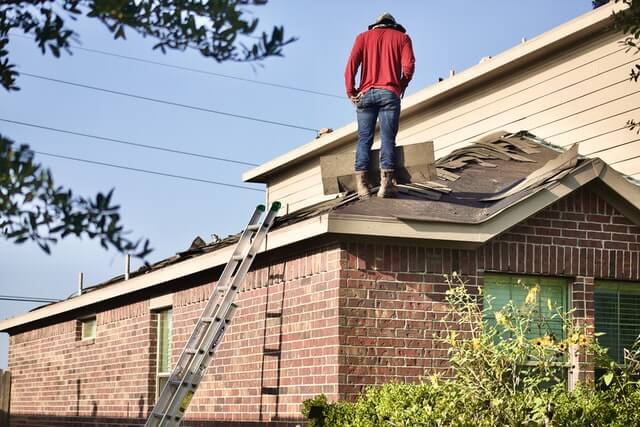As a homeowner, you deserve quality work performed on time and for the agreed-upon price. You want to work with a trades professional who is knowledgeable, trustworthy, and experienced in home improvement.
How do you know that your tradesman will be pleasant to work with, comfortable but not overly familiar in your home, and provide high-quality work? Look at it like this: tradespeople are not your employees. They are business people with whom you will enter into a business contract. Like any business arrangement, both parties agree to follow general rules. They follow timelines, handle payments as agreed, and respect the environment they share and the people in that shared space.
First, you have to hire the right person or team. This step-by-step guide will show you how to hire and work with the right person for your project.
Know the scope and what your project needs

The first step is the most important — have a clear picture of your project, its scope, and the possible tradespeople that may be involved. Not all jobs require a contractor. A residential contractor is a person who coordinates and oversees a renovation or building project. Generally, they are in charge of hiring and paying the required tradespeople, securing any permits needed, and making sure the project is completed on time and within budget, all the while overseeing the quality of the work.
A tradesman is a worker who focuses on a specific craft or trade such as a:
Many trades require a license or proof of certification. A good tradesperson will have that information ready to present to potential clients without hesitation. Gutters are important, and when they clog they can cause damage so for a simple gutter guard that any tradesman can install, check out this easy gutter protection.
Research and reviews
Once you have identified the worker(s) you will need, it is time to move on to research. Ask around for word-of-mouth recommendations and check online reviews. Confirm they have had first-hand experience and are not just recommending their business partner’s kid or favorite nephew.
Look for an online presence and read the positive and negative reviews. Not everyone will have the same criteria for performance or needs. If the repairman is a great plumber but not good at tiling, your shower install may not turn out as good as it could have been had you hired someone skilled at both. The review can also be personal and not about the quality of work. Even a great tradesperson can perform poorly in a pet-friendly environment if they are afraid of dogs or allergic to cats.
Get estimates

Many experts recommend at least three estimates. The estimate should be comprehensive and include labor costs as well as expected material costs.
Define your project including:
- Materials needed
- Who will pay for materials
- Who will look after clean up/dump removal
- Who pays the tradespeople (the client or the contractor)
- Task Calendar
- Payment Schedule
- Delivery Tracking
Before work begins, put it all in writing. A basic construction contract will have the names of both, the anticipated start and completion dates, and payment schedules. The bigger the build, the more comprehensive your contract should be. Small project and large project templates are available online. If the cost and scope of the project are grand, you may want to consider seeking legal counsel when drafting your contract. Most renovation or building loans will require an agreement drafted and signed by a lawyer or notary.
Warning signs your tradesman is not on the level
- A low estimate can signal poor quality work, low-quality materials, and an increase in the project’s total cost upon completion.
- Asking for a large down payment is another red flag. The payment schedule and job completion calendars should be part of the contract and agreed upon before starting the project.
- Clear, prompt, and respectful communication is key to any business arrangement. If you feel uncomfortable or nervous talking to your workers, that is a red flag.
Despite all of this, unforeseen challenges can occur. When it is clear that you and your handyman are in dispute, it may be time to involve legal proceedings. This article outlines steps you can take to bring the disagreement to a positive resolution.
Project expectations for client and contractor
It can be awkward having a stranger or strangers in your home, especially for projects that will limit access to key areas of your home, such as your kitchen or bathroom. Use clear communication regarding which areas are out of bounds. Signs that say “Please Knock Before Entering” are helpful for private areas that workers need access to and can help everyone avoid an uncomfortable or embarrassing situation.
Do your best to keep the areas under construction clean and pathways free of clutter. Give the tradespeople the space they need to work and keep pets away from shared areas.
Though it is not expected, it may be appropriate to offer light refreshments such as water or coffee. However, some companies will discourage their workers from accepting food, drinks, or direct payment from the client. If in doubt, ask the point of contact person for the project.
The importance of a home warranty during a home improvement project
Embarking on a home improvement project can be an exciting but challenging endeavor for homeowners. Whether it’s a small-scale renovation or a large-scale remodeling project, the importance of protecting your investment and managing unforeseen costs cannot be overstated. One way to mitigate potential risks and ensure peace of mind during the process is by having a home warranty in place. Let’s explore why a home warranty is valuable during a home improvement project.
Protection for existing systems and appliances
Home improvement projects often involve working with existing systems and appliances, such as HVAC units, plumbing, electrical wiring, and kitchen appliances. These components may experience unexpected breakdowns or damage during the renovation process. A home warranty provides coverage for these existing items, offering financial protection against repairs or replacements resulting from normal wear and tear. Having a warranty can save homeowners from incurring significant expenses should an unforeseen issue arise during the project.
Added security for new installations
While a home warranty primarily covers existing systems and appliances, some providers may offer options to extend coverage to newly installed components. This can be particularly beneficial for homeowners who are undertaking major renovations involving the installation of new HVAC systems, electrical upgrades, or other costly additions. By securing an extended warranty, homeowners can protect their newly installed assets, ensuring that they are covered for potential defects or malfunctions that may occur after the project is completed.
Safeguarding against post-project surprises
Even after a home improvement project is finished, there may be lingering concerns about the quality of workmanship or the durability of the materials used. In such cases, a home warranty can provide additional peace of mind. Some contractors offer their own warranties, but having a comprehensive home warranty that covers multiple systems and appliances can provide broader protection. If any issues arise as a result of the renovation work, homeowners can rely on the warranty to address those concerns promptly and at minimal cost.
Budgetary control and predictable costs
Home improvement projects often come with unexpected expenses. By having a home warranty, homeowners can better control their budgets and have a clear understanding of potential repair or replacement costs during and after the project. Instead of facing unpredictable financial burdens due to sudden breakdowns, a home warranty provides a level of financial predictability, allowing homeowners to plan and allocate resources accordingly.
A home improvement project can be an exciting opportunity to transform your living space and increase your property’s value. However, it’s crucial to consider potential risks and protect your investment. A home warranty plays a vital role during a home improvement project by providing coverage for existing systems and appliances, securing new installations, and safeguarding against post-project surprises. With the financial protection and peace of mind offered by a home warranty, homeowners can confidently navigate the renovation process and enjoy the benefits of their improved home.
Build your tradesperson business

Many upstanding tradespeople are working in America, and you can be one of them. So how do you get more business? Here are some helpful tips you can add to your tool belt to help increase your business.
Quality craftsmanship and worksite etiquette increase referrals
It takes more than quality work to be memorable. Referrals and reviews are an effective way of building your business through word of mouth. It all starts with the client’s first inquiry. Communication should be your number one priority. Answering emails, direct messages, and calls promptly will help you capture lead opportunities.
Come prepared for every interview. Carry your ID and credentials with you. Demonstrate you are a serious business person by respecting their home, time, and money.
Do your best to provide an accurate estimate. Continued changes to cost, time and materials can wear down consumer trust. Stay current on fluctuating product costs and potential labor shortages. These factors can cause delays and increase project costs. Anticipating problems before they start will increase the likelihood of the project being completed on time and within budget. That translates to better reviews and more business.
Once the project is complete and the payment has cleared, send a friendly follow-up to the client. This is your chance to request feedback and areas you can improve before it reaches the message boards. It is also an opportunity to gather reviews for use on your website or google page. Be sure to include a link to your google review page.
Develop a marketing strategy

A good marketing strategy can do wonders for a business. Write down your goals for your business and set a budget for marketing. Your goals should be things you can track and measure, like financial goals or increased positive reviews online. For some businesses, a SWOT analysis may be appropriate. That is to identify your strengths, weaknesses, opportunities, and threats to your business. Researching your competition will help fill out this picture.
Write out your mission statement or values and incorporate them into your marketing strategy. For the purpose of marketing, it is vital to think of yourself as a brand. Fifty-two percent of Millennials purchase from brands that align with their values.
Know your audience and build a few personas your marketing plan will target. What are your client’s needs, why are they choosing a tradesperson rather than DIY, and where do they look for tradespeople — these are all examples of questions you should have answers to before implementing your strategy. Your personas could be the growing family who needs to make better use of their space, the retiree who is not as mobile as they once were, or a person who often travels for work and needs maintenance performed on their home while away.
Develop a marketing plan that takes into account your personas and your budget. Take advantage of any union or trades sites that offer reciprocity ads without extra costs but don’t shy away from paid advertising. There are benefits to targeting the right audience for your business.
Your marketing plan will benefit from a content calendar or the inclusion of regular posts to your business’s social media pages. Keep it positive with content that entertains, educates, or empowers your audience.
Have a digital presence

In the digital age, you need an online presence. This can be as simple as a Google Business profile, a Facebook Business Profile, or a website. You can even develop a B2B digital campaign, so you can also consider starting a B2B marketplace software. There are many low-cost options to build your simple website, one that can offer customers your contact information and allow you to give a basic outline of the services you provide. If you opt for WordPress, there will be many opportunities to improve your blog with great plugins, such as Elementor, WP Reset, WP Sticky, Simple Author Box, and many others.
Both Facebook and Instagram Business Profiles are no-cost options, which, when used properly, can lead and drive traffic to your website. There are some critical do’s and don’ts when using social media.
- Do keep it positive
- Do avoid controversial politics
- Do delete negative comments
- Do handle customer complaints through direct message
- Do not engage in arguments
Don’t let missed deadlines, soaring costs, and poor craftsmanship turn a simple project into a nightmare. Take the time to plan, research, define the home improvement project, and set realistic goals with your tradespeople. If you have recently had a great experience with a tradesperson or contractor, show your support by leaving them a review or sending them a reference today.




